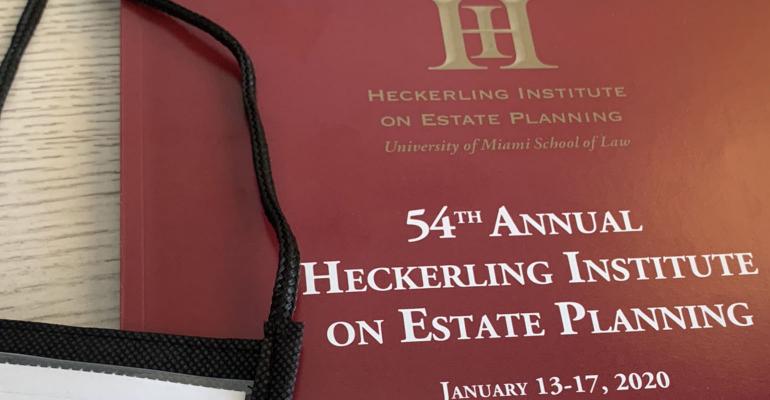I had a chance to talk with Martin Shenkman, an estate-planning attorney based in Fort Lee, N.J., about his upcoming presentation on Jan. 16 at the Heckerling Institute on Estate Planning. Marty will be talking about the issues estate-planning attorneys need to be aware of when using of powers of appointment (POAs). Sandra D. Glazier, Esq. an estate planner and litigator with Lipson, Neilson in West Bloomfield, Mich., joined in the discussion. Sandy recently completed a book for the ABA on undue influence.
POAs, Basis Step-Up and Undue Influence
Marty noted that practitioners have used POAs to help clients get a set-up in basis. When an elderly family member holds a general POA over a trust, it causes the assets in the trust to be included in that family member’s estate (thus, allowing the basis step-up).
But Marty and Sandy note that there’s an issue that some practitioners might overlook when engaging in this type of planning: elder abuse. They might just not think about the risks elder abuse and undue influence might have over the use of POAs. It’s possible that family members or unscrupulous individuals will try to get the elderly client to appoint the trust assets to them. Sandy has litigated cases involving abuse of POAs and cautioned that undue influence is often insidious and difficult to identify. That’s why Marty says it may be important to put safeguards in place. For example, require that the elderly client can’t exercise the POA unless he gets the consent of a non-adverse party, like a lawyer or family member who isn’t a beneficiary. That individual can provide some oversight and make sure that the elderly client isn’t being taken advantage of.
2020 Election
Another issue practitioners should consider is the uncertainty caused by the upcoming presidential election in 2020. He says that It’s possible that if a new administration is elected, the “estate planning party will be over,” meaning the estate tax exemption will be lowered substantially. Bernie Sander’s tax proposal was for a $3.5 million estate exemption and a mere $1 million gift exemption. Because many clients may be tempted to make large transfers before the election, Marty suggests building in flexibility to deal with this situation. Various types of POAs can be integrated into irrevocable trusts to create this flexibility., For example, allowing the client/settlor to exercise a power of substitution so that he can move assets back into the estate to gain a basis step-up or to alter the disposition of that asset once swapped back into the estate (for example, a family business). Another option is to grant limited POAs so that the powerholder can effectively rewrite the trust, so it can accomplish much of what a decanting can, and perhaps more. But POAs are powerful, even limited POAs can dramatically change an intended dispositive scheme. So, while building flexibility is important, practitioners should be mindful of the risks that elder abuse and undue influence might pose. Sandy added that if a practitioner even suspects these issues, consider documenting those suspicions in the file as that may be helpful and protective for the client should abuse or undue influence occur.





